Mobile home park residents near Seattle struggle to win bidding wars against investors
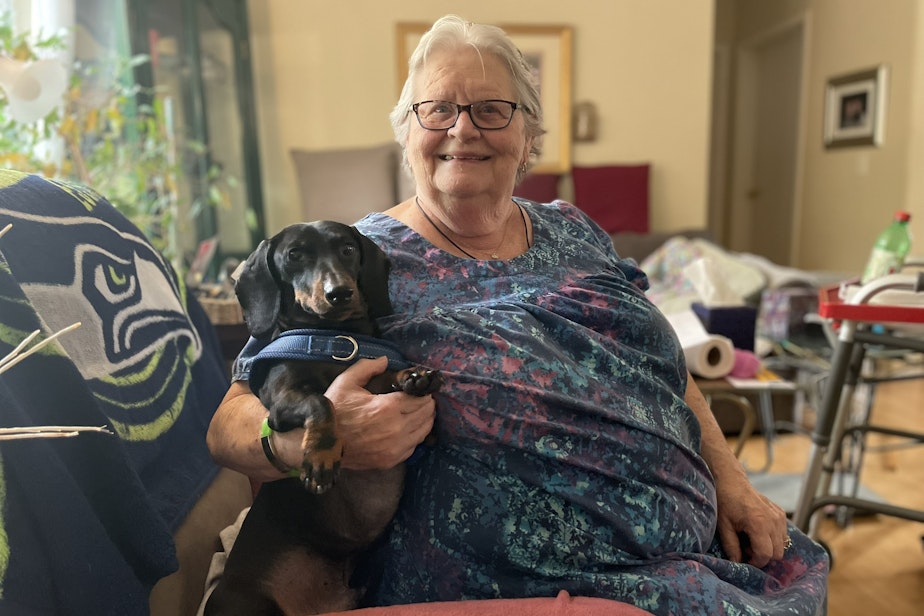
Demand for mobile homes has surged in recent years as people struggle to find affordable housing. That’s also made mobile home parks attractive to investors, who are snapping them up and raising rents.
In Washington state, some mobile home residents are fighting back, offering to buy the land themselves.
But experts say few resident communities will win the bidding war without more help from the state.
Carnation Mobile Haven is a trailer park for seniors about 40 minutes east of Seattle. Linda Brown, 82, lives in one of the small homes there with her dachshund, Chavi.
“He sits here and gives me something to love and pet,” she says. “We love each other. That's what we do.”
Sponsored
Brown is concerned because the owner of this mobile home park, who she says has generously kept rents low here for many years, is selling to an investor for just over $4 million.
Financial experts say that investors will probably need to raise rents significantly to cover the purchase price. If that happens, Brown, who lives on a small social security check, will have to leave. It's called an "economic eviction."
“You know what I wish more than anything?” Brown says. “That I was 20 years younger and I could still work. Because when I could work, I had power — I had my own income. Yes, Chavi, I did. And I could take care of myself. My biggest fear is, I don't want my children to have to look after me. That's my biggest fear.”
As she answers questions, Chavi growls quietly.
"It's very hard for me,” Brown continues. “I get very anxious. I'm like the dog — anxious. "
Sponsored
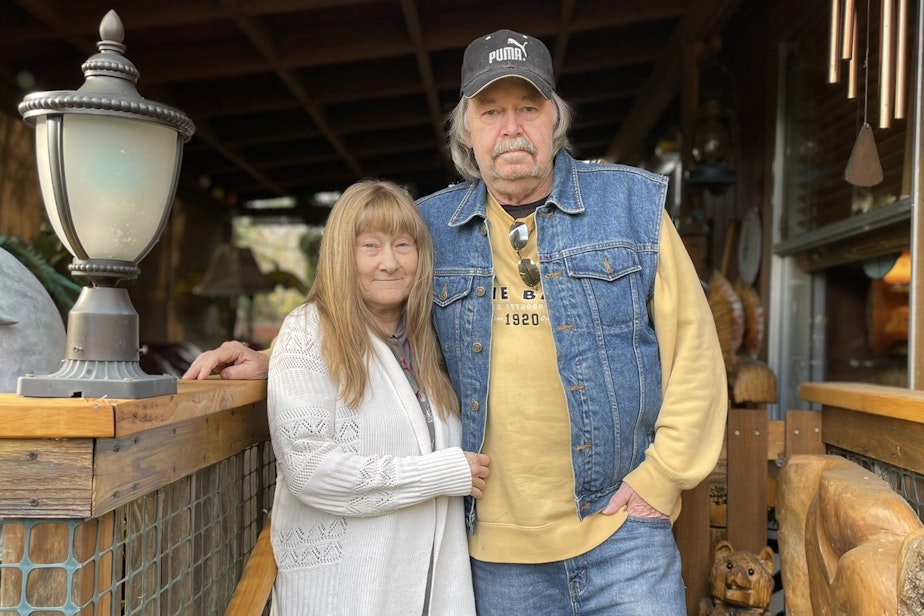
Others in this mobile home park say they could end up homeless, including Tom and Patty Gilbert, whose home has become a rock of financial stability during a storm of skyrocketing medical bills. Their home fills an emotional need too, as a place to display hundreds of geodes, arrowheads, antique bottles, and trilobite fossils collected over 50 years of marriage.
"We're not aware of any other place that we could afford," Patty says.

Sponsored
Down the street, their neighbor Linda Henault puts it more bleakly.
"We would have to sell the place and move out into a tent," she says.
“Into a tent,” confirms Norma Ross, Henault's sister and roommate.
U
ntil recently, residents thought they might have a shot to purchase this place for themselves.
Under a state law that went into effect this summer, residents of mobile home parks now have a chance to buy the land beneath their homes as a resident-owned cooperative. The process usually means raising land rents in the short term, to cover their debt. But the rents stabilize after that.
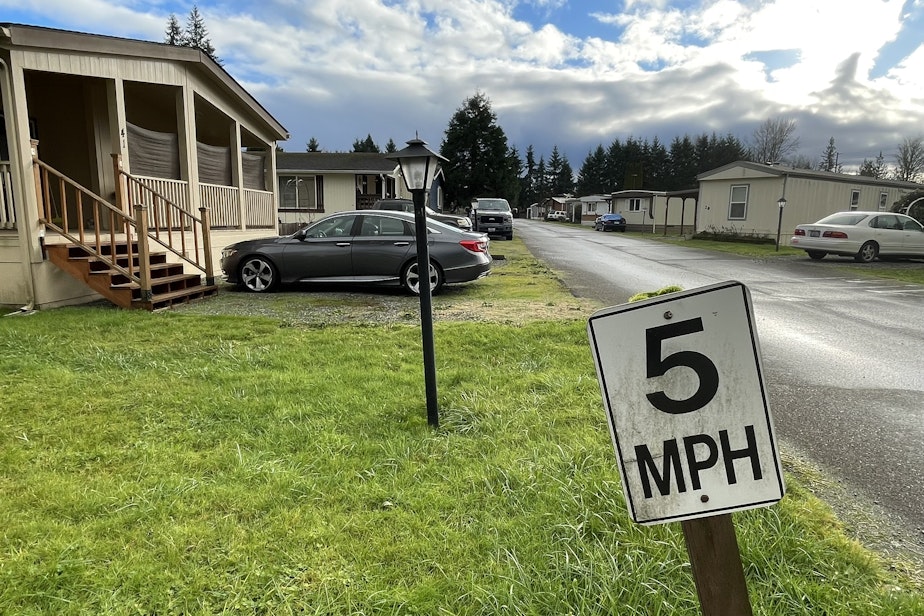
Sponsored
In Washington state, resident-owned community co-ops, or ROC co-ops, can get help from ROC Northwest, a program of the nonprofit Northwest Cooperative Development Center.
Victoria O'Banion is in charge of acquisitions at the organization. She says the few mobile home parks that successfully pull together competitive offers can stomach a significant rent increase.
"They're able to do that because they're working families," she explains.
In contrast, Carnation Mobile Haven is full of seniors on fixed income from social security.
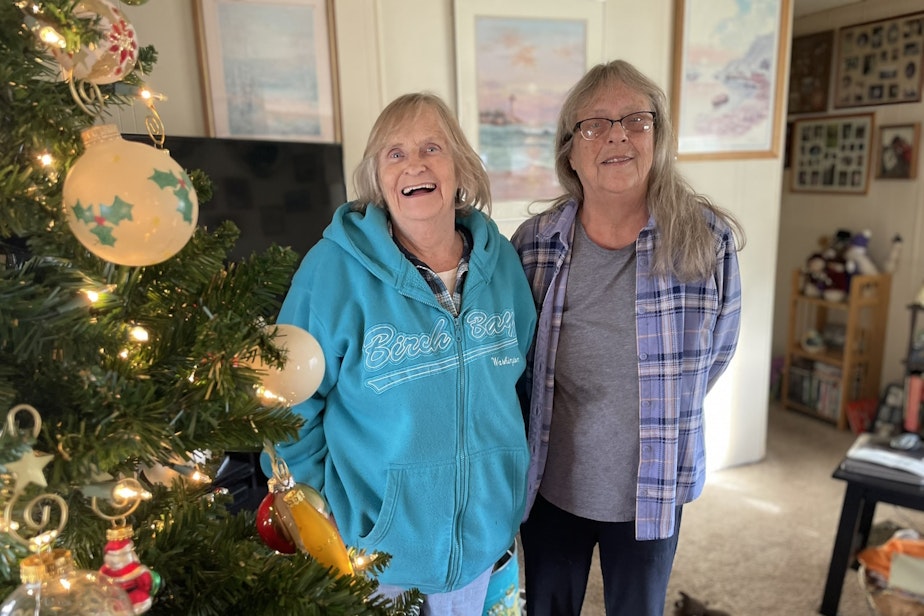
Sponsored
O'Banion says Carnation’s deal fell short. The residents didn’t have enough money, and she says ROC Northwest didn’t have enough time to find more.
The investors they’re going up against were just moving too fast, waiving all inspections so their deal could close in just 30 days, O’Banion says.
“Any of the state money — any of the money that I have access to — requires a physical site inspection of the park, requires an environmental analysis,” O’Banion explains. “It requires so many inspections that I need at least 90 days."
And that's just to make a competitive offer matching the private investor's offer of just over $4 million dollars. O’Banion says finding enough additional money (around $3 million) to keep rents low in Carnation would take between one and two years.
News that the deal fell through has hit residents of Carnation Mobile Haven hard. Steven Bayne, who has been pleading his community’s case to any state or city official who will listen, has grown cynical. He says he feels the system is rigged against mobile home parks where residents are 55 years and older.
“There's some people that are going to be in deep, deep doo-doo here,” he says.
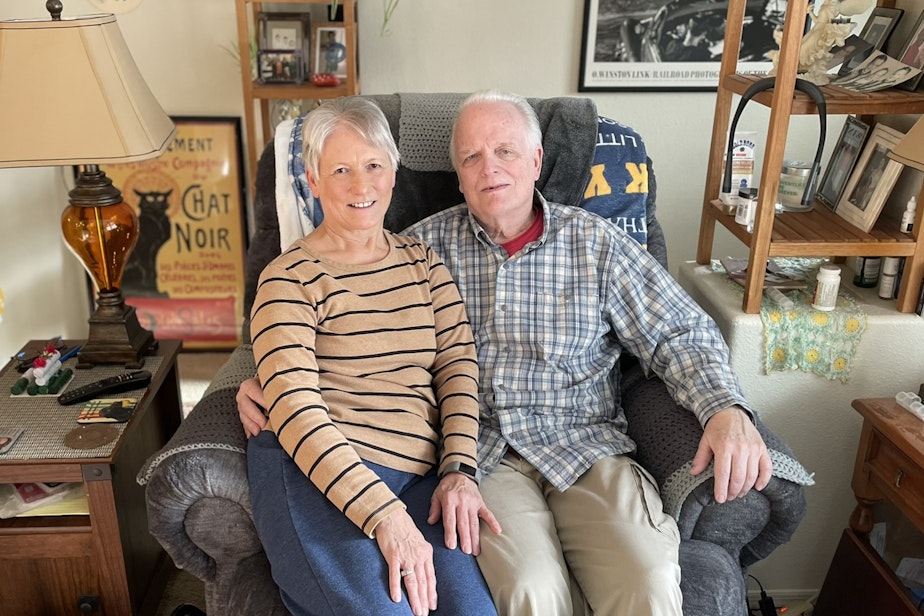
Bayne says ROC Northwest raised the hopes of residents at Carnation Mobile Haven, then stopped communicating when things went bad, leaving residents unclear about their options and their future.
“I feel we were not dealt with in good faith,” he says.
In an email regarding Bayne's complaint, Ann Campbell, the head of the homeownership program for the Washington State Department of Commerce, pointed to an overwhelmed system and misunderstandings.
"Northwest Cooperative Development Corporation is one organization with extremely limited staff attempting to work with multiple communities facing sale across our state. I am sincerely saddened by the miscommunication that you’ve experienced," the email reads.
O’Banion says it’s understandable that the seniors in Carnation are grieving.
“I hear them, and I see them,” she says.
O'Banion adds that in 2024, she'll be asking the state legislature to backfill funding for programs that would help more deals go through.
Representative Strom Peterson of Everett chairs the Housing Committee and he's open to the idea.
"It's hard to compete with the private market,” he says. “These are some profitable communities. There's a reason that Warren Buffett has been buying communities around the country. They can be really good investments. I think they can be really good investments for the state."
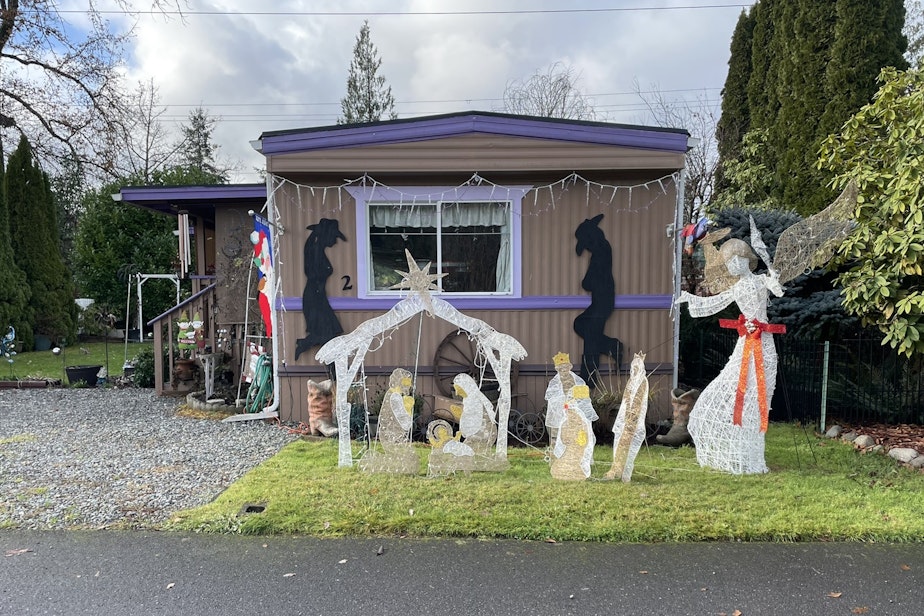
Mobile homes plots can cost the state $75,000 to $100,000 per home to preserve, using the resident co-op model. In comparison, a single apartment unit in the Seattle metro area typically costs between $300,000 and $400,000.
Peterson says he'd support giving easy-to-access money to the Department of Commerce so the state could jump in and help resident co-ops rapidly acquire mobile home parks, much like the state's doing now with hotels and motels.
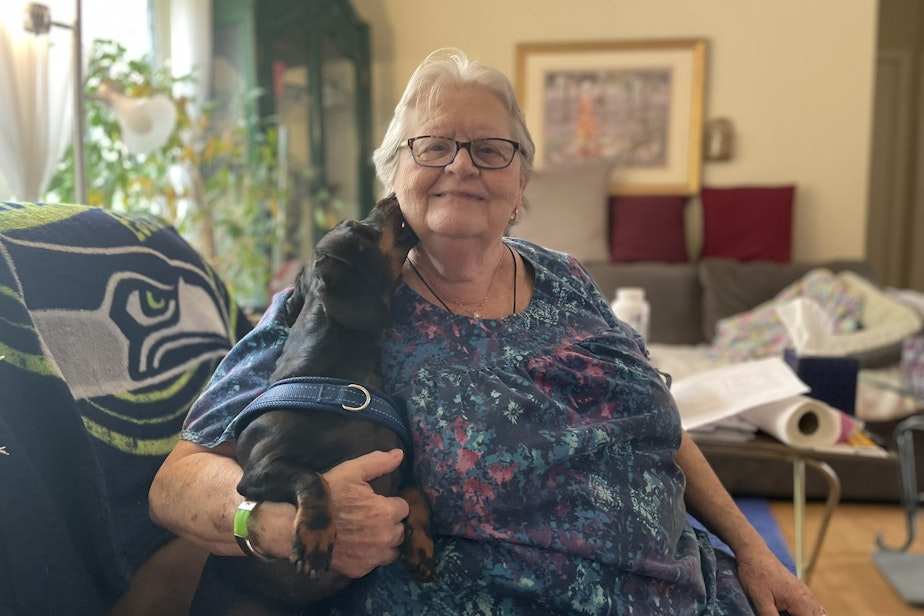
With a major budget shortfall (due to road culvert construction cost increases) and a short legislative session, money will be hard to find in 2024.
Even if the legislature does act, it can't happen fast enough to save Carnation Mobile Haven from investors.
Back in her mobile home, Linda Brown strokes Chavi the dachshund, who sits wedged between her lap and the side of the recliner. For the past several minutes, Chavi’s been growling quietly. The rumble grows louder as the reporter with the big fuzzy microphone rises to leave.
"Me and my dog,” Brown says. “He'd fight them off if he could."




